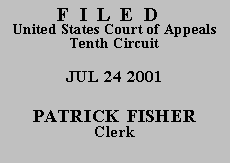

| HAGOOD-NEW MEXICO TRUST NO. 1, |
|
| v. | |
| PHILLIPS PETROLEUM COMPANY, a Delaware corporation, individually and as managing general partner for Phillips San Juan Partners, L.P., |
The 1951 and 1953 assignments provided that the overriding royalty would be paid on the value of the gas "at the wells as produced" (1951) or "at the time of production" (1953). As is true of royalty usually, the costs of production from the well are not attributed to the royalty owner. Appellant royalty owner contends that "the time of production" is when gas is sold at the tailgate of the treatment plant, and that the costs of the treatment should be borne by the lessee. Whatever the chances for that contention, looking only at the bare words of the assignment, they are lost when the circumstances of production and sale in 1953 are considered. Contracts are construed in the context of the existing facts and circumstances, and in 1953 the gas from these properties was being produced and sold to pipelines at the wellhead. Some 30 years later the wells began to produce only coal seam gas, which had to be processed to remove carbon dioxide and water before being sold at the tailgate of the treatment plant. It would be rewriting the assignment to move the "time of production" from wellhead to tailgate to favor the royalty owner. Appellant's construction of the 1953 assignment fails.
We do agree with the district court that the "most favored nation" clause creates an ambiguity, and the court's resolution of that question is supported by the evidence. Appellee clearly states that the royalty paid to appellant has been and will be computed consistently with that paid to the United States.
As for appellant's contention that the federal royalty valuations should be computed only under the federal regulation in effect at the time of the assignments, the government's leases expressly provide that they are subject to later reasonable regulation. Appellant stays with the government; and if the government's royalty changes, so does appellant's.
Appellant objects to tying its rights to the outcome of pending administrative proceedings between appellee and the government. We see no problem. The court was correct to avoid ruling on issues pending before the agency. And the court decided all of appellant's claims, rendering a final judgment. That judgment is now
AFFIRMED.
ENTERED FOR THE COURT
Thomas M. Reavley
Senior Circuit Judge
*.This order and judgment is not binding precedent, except under the doctrines of law of the case, res judicata, and collateral estoppel. The court generally disfavors the citation of orders and judgments; nevertheless, an order and judgment may be cited under the terms and conditions of 10th Cir. R. 36.3.
2.Honorable Thomas M. Reavley, United States Senior Circuit Judge for the Fifth Circuit, sitting by designation.